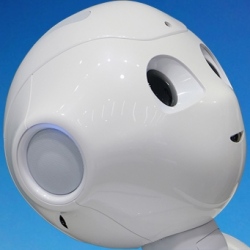
As AI continues to make their way into the enterprise, questions remain about which jobs will be most impacted by the technologies. According to a report from automation OS WorkMarket, 74% of business leaders and employees said they believe that some parts of their job could be automated in some way.
In addition to believing that automation could impact their jobs, many respondents felt that it could happen soon. Some 61% of business leaders said that automation could be deployed in their particular industry or job within a single year.
IT problems, data processing, and repetitive tasks like data entry are the most automatable tasks, the report said. IT issues were listed as the biggest hindrance to getting work done, with 43% of leaders and 29% of employees mentioning it as a roadblock—meaning that efforts to automate IT could lead in some deployments.
While many of the respondents felt that automation could happen, they weren’t all interested in exploring it. Only 29% of employees said that they were interested in automation, while 52% of business leaders said they were.
In the short term, process automation is more valuable than general AI, the report found. Automation technologies were currently being used by 41% of respondents, compared to the 13% using AI. More leaders (56%) have a plan in place for automation than do for AI (44%), the report said,
Overwhelmingly, respondents noted the potential value in automation. Some 90% said that they believe automating work tasks will provide particular advantages such as reducing manual errors, increasing speed, and improving the quality of the work. More than half of employees said they believe automation could save them up to two hours a day, and 78% of leaders said they could save up to three hours a day with automation, the report found.
"A key to success with tomorrow’s mix of traditional employees, digital substitutes and crowd-based work systems is ensuring that the needs of both shareholders and the labor force are met," New York University professor Arun Sundararajan said in a press release for the report. "Productivity gains through automation and on-demand innovation are essential to maintaining economic growth levels that create sufficient future demand for human talent."
The 3 big takeaways
According to a WorkMarket report, 74% of professionals said they believe their jobs could be automated in one way or another.
Some 61% of business leaders said that they believe automation could be deployed and implemented within a single year.
Automation shows more immediate value than general AI, with more leaders working with automation technologies currently.
